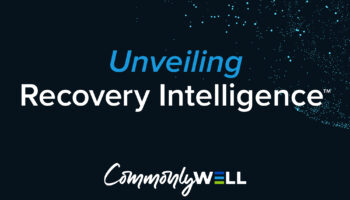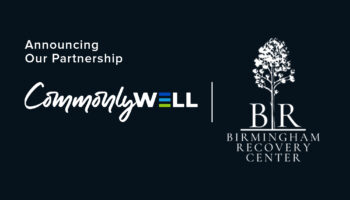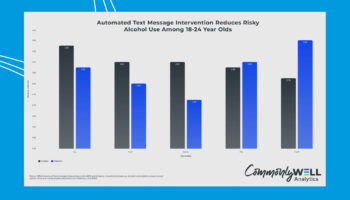Insights & Resources
Commonly Well Announces the Formation of an Advisory Panel to Responsibly Guide the Integration of AI into Recovery Management and Addiction Treatment Services
We are thrilled to announce the distinguished Advisory Panel that will play a crucial role in our product development. They’ll be overseeing the implementation of valuable artificial intelligence (AI) into our Recovery IntelligenceTM technology for addiction care, social care, and recovery support services.
Read More →By David
11/21/23
Generative AI Won’t Take Your Job, But It Will Change It
By streamlining administrative tasks, Generative Artificial Intelligence will save time and resources, allowing care providers to focus on what truly matters – human connection.
Read More →By David
11/9/23
Recovery Intelligence Made Smarter With AI
We’re advancing Recovery Intelligence™ with generative Artificial Intelligence. With the announcement of our new Chief Technology Officer, Justin Smith, and his extensive background in machine learning and AI, it should be no surprise that we are amplifying Commonly Well’s methods with the power of Artificial Intelligence. We’re in the thick of designing a modern iteration of our analytics dashboard and data interactions that will help customers make a bigger impact on their clients’ care.
Read More →By David
10/12/23
Commonly Well Hires Seasoned AI Expert, Justin Smith, PhD
As we continue to grow Commonly Well, we aim to work with people who share our drive to combine intelligence and compassion into impactful solutions. One who does just that is Justin Smith, PhD, and his addition to the team as Chief Technology Officer signifies a significant leap to making Recovery Intelligence even smarter.
Read More →By David
9/21/23
The Evolution of Recovery Intelligence™
The quest to remake the lives of those seeking recovery requires continuous learning and improved understanding of the root causes and influences of addiction.
Read More →By David
9/19/23
Unveiling Recovery Intelligence
Recovery Intelligence™ is the human-centered, data-driven solution to addiction recovery. Without the right framework or process, most goals and outcomes are never fully reached. This has been especially true for addiction care providers and behavioral health organizations that lack the means to measure outcomes, let alone achieve them.
Read More →By David
9/14/23
Meet Commonly Well: The Leader of Recovery Intelligence
As the first Recovery Intelligence™ firm, Commonly Well is propelling the addiction recovery field into the future, with advanced approaches to data and delivery of care.
Read More →By David
9/5/23
Birmingham Recovery Center leverages the Recovery Capital Index to better client lives
"When we started this program... our objective was to do better as a program and to help elevate the services and the perceptions throughout the field. And the RCI is one of those things that just helps us to be better." - Ian Henyon, Executive Director at Birmingham Recovery Center
Read More →By Patrick
7/26/23
Elements for good text prompts to improve survey response rates
Creating a relatable and engaging message prompts are key for client participation in assessments and surveys over time. But it all starts with a great opt-in sequence and welcome messages.
Read More →By David
7/22/23
1,000+ RCI’s Completed in June
1,017. This was the total number of Recovery Capital Index (RCI) survey's completed in June 2023; and it was the first month with 1,000+ completions since launching Commonly Well at the end of May 2020. It's a milestone worth a few moments of reflection.
Read More →By David
7/3/23
Bringing more diversity of thought to behavioral healthcare
When we explore best practices in behavioral healthcare, we constantly look inside our field and rarely seek best practices of psychology and experience from other services and industries. This is limiting our ability to be more effective and truly great practitioners of care.
Read More →By David
6/22/23
Text message interventions reduce problematic alcohol use
Automated text messages reduce bing drinking episodes AND negative drinking consequences when focused on a particular use management strategy for 18-25 year olds.
Read More →By David
6/13/23











